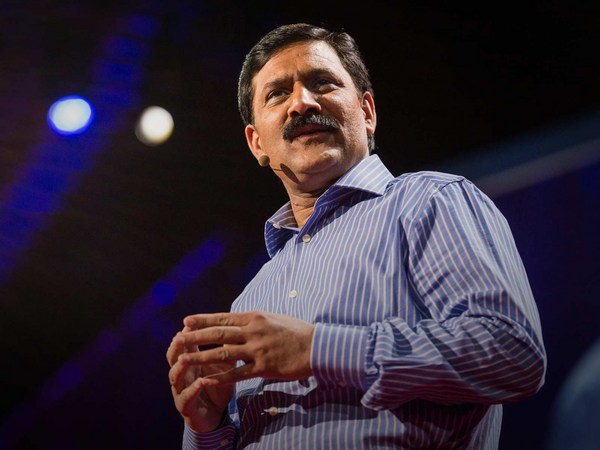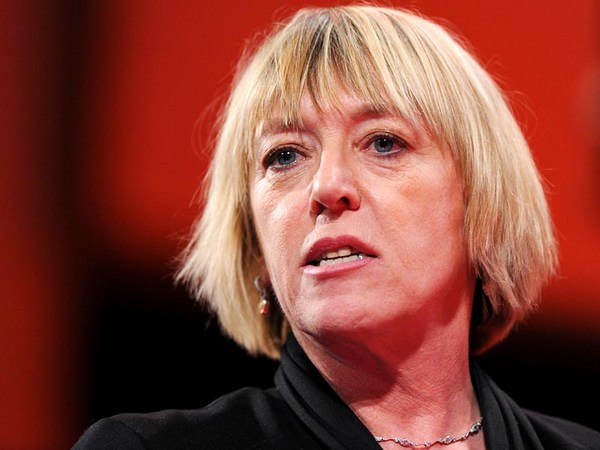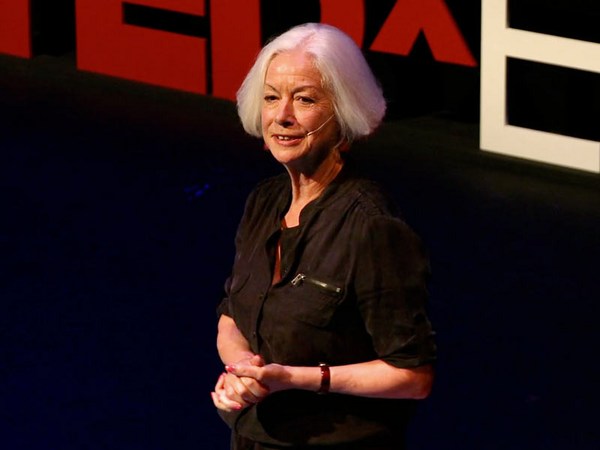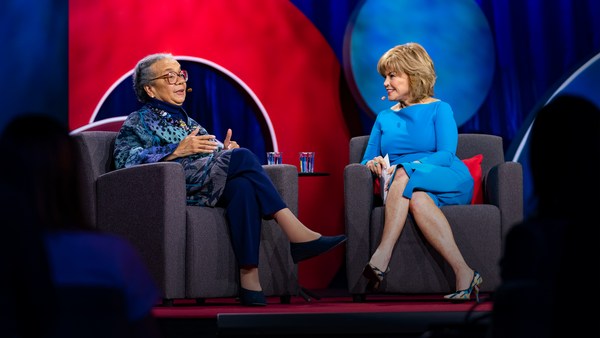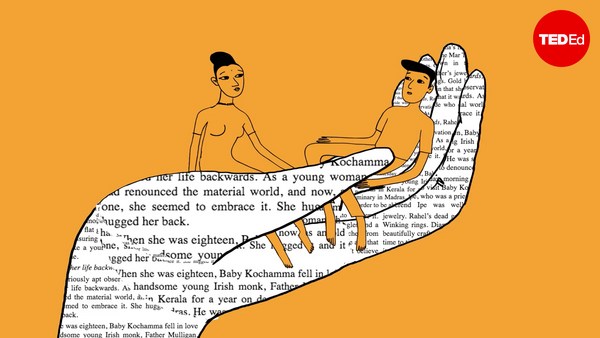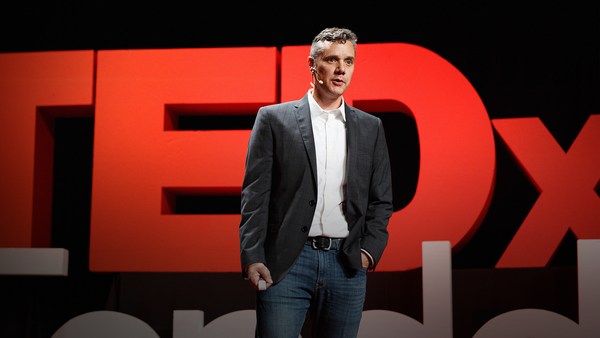Today, I am going to talk about anger. When I was 11, seeing some of my friends leaving the school because their parents could not afford textbooks made me angry. When I was 27, hearing the plight of a desperate slave father whose daughter was about to be sold to a brothel made me angry. At the age of 50, lying on the street, in a pool of blood, along with my own son, made me angry.
Dear friends, for centuries we were taught anger is bad. Our parents, teachers, priests -- everyone taught us how to control and suppress our anger. But I ask why? Why can't we convert our anger for the larger good of society? Why can't we use our anger to challenge and change the evils of the world? That I tried to do.
Friends, most of the brightest ideas came to my mind out of anger. Like when I was 35 and sat in a locked-up, tiny prison. The whole night, I was angry. But it has given birth to a new idea. But I will come to that later on. Let me begin with the story of how I got a name for myself.
I had been a big admirer of Mahatma Gandhi since my childhood. Gandhi fought and lead India's freedom movement. But more importantly, he taught us how to treat the most vulnerable sections, the most deprived people, with dignity and respect. And so, when India was celebrating Mahatma Gandhi's birth centenary in 1969 -- at that time I was 15 -- an idea came to my mind. Why can't we celebrate it differently? I knew, as perhaps many of you might know, that in India, a large number of people are born in the lowest segment of caste. And they are treated as untouchables. These are the people -- forget about allowing them to go to the temples, they cannot even go into the houses and shops of high-caste people.
So I was very impressed with the leaders of my town who were speaking very highly against the caste system and untouchability and talking of Gandhian ideals. So inspired by that, I thought, let us set an example by inviting these people to eat food cooked and served by the untouchable community. I went to some low-caste, so-called untouchable, people, tried to convince them, but it was unthinkable for them. They told me, "No, no. It's not possible. It never happened." I said, "Look at these leaders, they are so great, they are against untouchability. They will come. If nobody comes, we can set an example." These people thought that I was too naive. Finally, they were convinced.
My friends and I took our bicycles and invited political leaders. And I was so thrilled, rather, empowered to see that each one of them agreed to come. I thought, "Great idea. We can set an example. We can bring about change in the society."
The day has come. All these untouchables, three women and two men, they agreed to come. I could recall that they had used the best of their clothes. They brought new utensils. They had taken baths hundreds of times because it was unthinkable for them to do. It was the moment of change. They gathered. Food was cooked. It was 7 o'clock. By 8 o'clock, we kept on waiting, because it's not very uncommon that the leaders become late, for an hour or so.
So after 8 o'clock, we took our bicycles and went to these leaders' homes, just to remind them. One of the leader's wives told me, "Sorry, he is having some headache, perhaps he cannot come." I went to another leader and his wife told me, "Okay, you go, he will definitely join." So I thought that the dinner will take place, though not at that large a scale.
I went back to the venue, which was a newly built Mahatma Gandhi Park. It was 10 o'clock. None of the leaders showed up. That made me angry. I was standing, leaning against Mahatma Gandhi's statue. I was emotionally drained, rather exhausted. Then I sat down where the food was lying. I kept my emotions on hold. But then, when I took the first bite, I broke down in tears. And suddenly I felt a hand on my shoulder. And it was the healing, motherly touch of an untouchable woman. And she told me, "Kailash, why are you crying? You have done your bit. You have eaten the food cooked by untouchables, which has never happened in our memory." She said, "You won today." And my friends, she was right.
I came back home, a little after midnight, shocked to see that several high-caste elderly people were sitting in my courtyard. I saw my mother and elderly women were crying and they were pleading to these elderly people because they had threatened to outcaste my whole family. And you know, outcasting the family is the biggest social punishment one can think of. Somehow they agreed to punish only me, and the punishment was purification. That means I had to go 600 miles away from my hometown to the River Ganges to take a holy dip. And after that, I should organize a feast for priests, 101 priests, wash their feet and drink that water.
It was total nonsense, and I refused to accept that punishment. How did they punish me? I was barred from entering into my own kitchen and my own dining room, my utensils were separated. But the night when I was angry, they wanted to outcaste me. But I decided to outcaste the entire caste system. (Applause)
And that was possible because the beginning would have been to change the family name, or surname, because in India, most of the family names are caste names. So I decided to drop my name. And then, later on, I gave a new name to myself: Satyarthi, that means, "seeker of truth." (Applause) And that was the beginning of my transformative anger.
Friends, maybe one of you can tell me, what was I doing before becoming a children's rights activist? Does anybody know? No. I was an engineer, an electrical engineer. And then I learned how the energy of burning fire, coal, the nuclear blast inside the chambers, raging river currents, fierce winds, could be converted into the light and lives of millions. I also learned how the most uncontrollable form of energy could be harnessed for good and making society better.
So I'll come back to the story of when I was caught in the prison: I was very happy freeing a dozen children from slavery, handing them over to their parents. I cannot explain my joy when I free a child. I was so happy. But when I was waiting for my train to come back to my hometown, Delhi, I saw that dozens of children were arriving; they were being trafficked by someone. I stopped them, those people. I complained to the police. So the policemen, instead of helping me, they threw me in this small, tiny shell, like an animal. And that was the night of anger when one of the brightest and biggest ideas was born. I thought that if I keep on freeing 10 children, and 50 more will join, that's not done. And I believed in the power of consumers, and let me tell you that this was the first time when a campaign was launched by me or anywhere in the world, to educate and sensitize the consumers to create a demand for child-labor-free rugs. In Europe and America, we have been successful. And it has resulted in a fall in child labor in South Asian countries by 80 percent. (Applause)
Not only that, but this first-ever consumer's power, or consumer's campaign has grown in other countries and other industries, maybe chocolate, maybe apparel, maybe shoes -- it has gone beyond. My anger at the age of 11, when I realized how important education is for every child, I got an idea to collect used books and help the poorest children. I created a book bank at the age of 11. But I did not stop. Later on, I cofounded the world's single largest civil society campaign for education that is the Global Campaign for Education. That has helped in changing the whole thinking towards education from the charity mode to the human rights mode, and that has concretely helped the reduction of out-of-school children by half in the last 15 years. (Applause)
My anger at the age of 27, to free that girl who was about to be sold to a brothel, has given me an idea to go for a new strategy of raid and rescue, freeing children from slavery. And I am so lucky and proud to say that it is not one or 10 or 20, but my colleagues and I have been able to physically liberate 83,000 child slaves and hand them over back to their families and mothers. (Applause)
I knew that we needed global policies. We organized the worldwide marches against child labor and that has also resulted in a new international convention to protect the children who are in the worst forms. And the concrete result was that the number of child laborers globally has gone down by one third in the last 15 years. (Applause)
So, in each case, it began from anger, turned into an idea, and action. So anger, what next? Idea, and -- Audience: Action Kailash Satyarthi: Anger, idea, action. Which I tried to do.
Anger is a power, anger is an energy, and the law of nature is that energy can never be created and never be vanished, can never be destroyed. So why can't the energy of anger be translated and harnessed to create a better and beautiful world, a more just and equitable world?
Anger is within each one of you, and I will share a secret for a few seconds: that if we are confined in the narrow shells of egos, and the circles of selfishness, then the anger will turn out to be hatred, violence, revenge, destruction. But if we are able to break the circles, then the same anger could turn into a great power. We can break the circles by using our inherent compassion and connect with the world through compassion to make this world better. That same anger could be transformed into it.
So dear friends, sisters and brothers, again, as a Nobel Laureate, I am urging you to become angry. I am urging you to become angry. And the angriest among us is the one who can transform his anger into idea and action.
Thank you so much.
(Applause)
Chris Anderson: For many years, you've been an inspiration to others. Who or what inspires you and why?
KS: Good question. Chris, let me tell you, and that is the truth, each time when I free a child, the child who has lost all his hope that he will ever come back to his mother, the first smile of freedom, and the mother who has lost all hope that the son or daughter can ever come back and sit in her lap, they become so emotional and the first tear of joy rolls down on her cheek, I see the glimpse of God in it -- this is my biggest inspiration. And I am so lucky that not once, as I said before, but thousands of times, I have been able to witness my God in the faces of those children and they are my biggest inspirations. Thank you.
(Applause)
